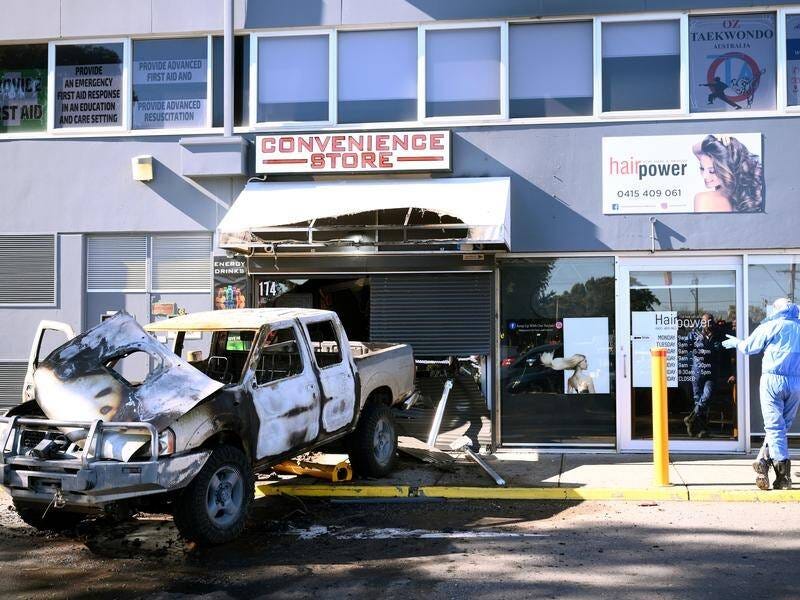Written by FarCue, find more of his content on 𝕏 @FarCueCunce, and on Rumble at FarCue Media
The Melbourne Tobacco Wars have become a pressing issue in recent years, with criminal organisations exploiting the power of unions to smuggle contraband through Australian ports. The flow of illicit tobacco, in particular, has become a significant issue, costing the Australian government millions in lost revenue each year.
This article will explore the role of warring gangs, government taxes, and their impact on the contraband tobacco trade.
Warring Gangs and the Contraband Trade
The Melbourne Tobacco Wars are fuelled by rival criminal gangs vying for control of the lucrative contraband trade. These gangs have established extensive networks within the ports, allowing them to manipulate the screening and inspection processes and move their illicit goods undetected. In recent months, the ongoing conflict between these gangs has led to increased violence and crime in the city, posing a serious threat to public safety.
Government Taxes and the Contraband Trade
While criminal organisations are undoubtedly responsible for the majority of contraband trade, it is essential to recognise the role government taxes play in fuelling this illicit industry. High taxes on tobacco products create a significant price disparity between legal and illicit goods, making it increasingly profitable for criminal organisations to engage in smuggling operations.
The Australian government's high tax rate on tobacco has inadvertently created a lucrative market for contraband products, leading many consumers to turn to the black market to purchase cheaper, untaxed cigarettes. This demand drives criminal organisations to increase their smuggling operations, creating a vicious cycle that only serves to further exacerbate the problem.
Circular Nature of Union Donations
Adding to the complexity of this issue is the circular nature of union donations to government entities. In the 2021-2022 financial year, unions donated an estimated total of $28.6 million to both state and federal governments. This figure includes donations to the Victorian government, as well as other state and federal entities.
These donations, while seemingly innocuous, can create a conflict of interest when it comes to cracking down on issues such as the contraband trade. The government will be less inclined to take decisive action against unions involved in criminal activities if they are receiving significant financial support from these organisations.
Solutions to Curb the Contraband Trade
To combat the issue of contraband trade in Melbourne, we must implement a multi-faceted approach that addresses both the root causes and the symptoms of the problem.
Strengthening Border Security:
By increasing the number of Customs and Border Protection officers at our ports, we can better monitor the flow of goods and deter criminal activity.
This includes investing in advanced screening technologies and implementing stricter penalties for those caught smuggling contraband.
Transparency and Accountability:
We must ensure that all port operations are conducted with complete transparency and accountability.
This includes regular audits of screening and inspection processes, as well as whistle-blower protections for those who report suspected criminal activity.
Dismantling Corruption:
Efforts must be made to root out corruption within unions and other organisations involved in port operations.
Thorough background checks and audits of extended family’s assets and accounts.
This includes stricter enforcement of anti-corruption laws, as well as increased support for those who come forward with information about corrupt practices.
Revisiting Tax Policies:
The Australian government should consider revising its tax policies on tobacco products to reduce the price disparity between legal and illicit goods.
By making legal tobacco products more affordable, we can reduce the demand for contraband products and weaken the criminal organisations that profit from their sale.
Addressing Union Donations:
The government must address the potential conflict of interest created by union donations.
This could include implementing stricter guidelines for accepting donations or establishing a code of conduct for government entities receiving financial support from unions.
Conclusion
The Melbourne Tobacco Wars are a clear indication of the power that criminal organisations wield over our ports and the potential for the government's high tax rates to fuel this illicit trade. The circular nature of union donations to government entities further complicates the issue, creating a potential conflict of interest.
By implementing the solutions outlined above, we can curb the flow of contraband through our ports and protect the health, safety and wallets of our citizens.
It is time for Australia to take a stand against corruption and reclaim control of our borders.


